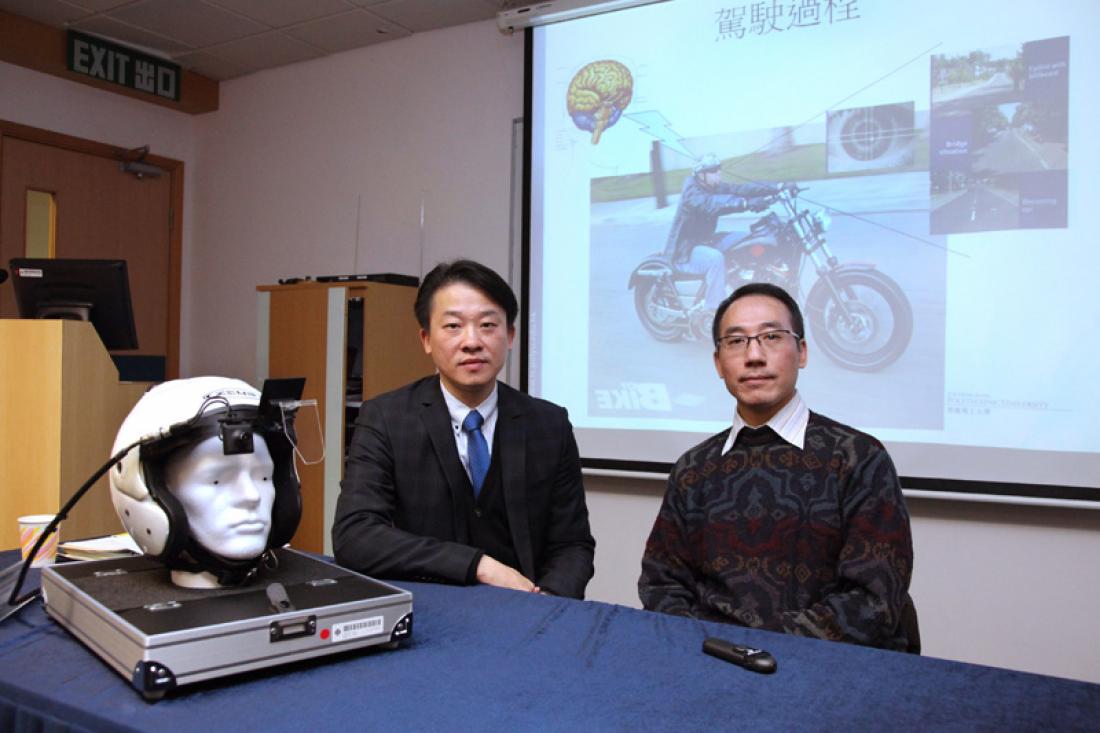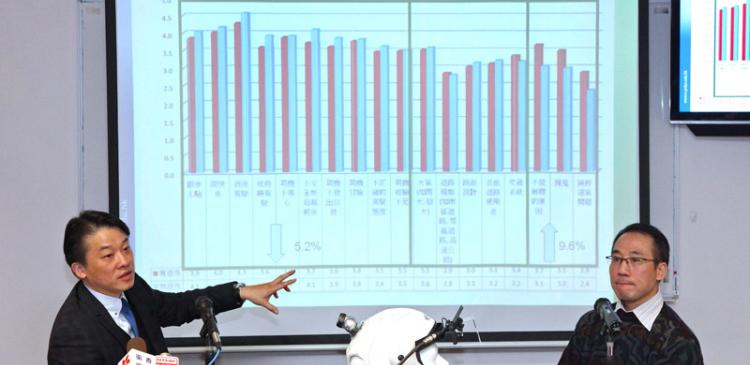A pioneering study conducted by scholar of The Hong Kong Polytechnic University (PolyU) showed that accident-involved motorcyclists had a tendency for overtaking and speeding, false beliefs on the causes of traffic accidents, and slower response time in identifying road hazards. Further study was undertaken on their driving behaviour and tailor-made programmes were developed to enhance motorcyclists' road hazard perception skills.
This two-year study on Hong Kong motorcyclists was done by the Ergonomics and Human Performance Laboratory of PolyU's Department of Rehabilitation Sciences. It aims to better understand the role of human factors, thereby developing effective counter-measures for the prevention of traffic accidents involving motorcycles. Since its launch in 2008, PolyU researchers have conducted several studies to investigate motorcyclists' traffic risk perception, driving violation behaviour, and the effect on their road hazard perception ability.
In the first stage of study, some 920 motorcyclists were asked to complete a questionnaire comprising three parts: (1) demographic information, (2) an 18-item traffic risk perception checklist, and (3) a 19-item Chinese Motorcyclists Driving Violation Index. After that, 109 motorcyclists were involved in second stage study in which neuropsychological and simulated motorcycle driving tests were performed. The results of the studies showed that traffic risk perception and driving violation behaviour could affect the road hazard perception skills of the motorcyclists, resulting in traffic accident.
The majority of those 920 motorcyclists interviewed by PolyU researchers were male (97.84%), with a mean age of 31, 8 years of post-license driving experience and mean annual mileage of 10,226 km. Among them, 330 (35.9%) had been involved in traffic accidents. The results of the study showed that within the three dimensions of traffic risk perception (driving-based risk, environment-based risk, and belief-based risk), accident-involved motorcyclists had lower mean total scores in driving-based risk perception but higher in belief-based risk perception when compared with accident-free counterparts. This result suggested that drivers considered driving-based risk factors - particularly "unsafe overtaking" and "driving when tired" - less important, but belief-based risk factors - particularly "bad luck" and "accidents are unexplainable" - more important than accident-free motorcycle riders.
In addition, the total mean score of Chinese Motorcyclists Driving Violation Index of accident-involved motorcyclists was 32.4% higher than accident-free motorcyclists, particularly with a higher propensity for overtaking and speeding.
Of these 920 motorcyclists, 109 motorcyclists (including 46 accident-involved drivers and 63 accident-free drivers) agreed to participate in a further study to examine their hazard perception ability in identifying road hazards. All of them undertook four neuropsychological tests of visual attention, and viewed different road situations with an eye-tracking system to record the response latencies for potentially dangerous traffic situations.
The results showed that both the divided and selective attention of accident-involved motorcyclists were significantly inferior to those of accident-free motorcyclists, and they in fact took longer time to identify hazardous situations.
The most plausible explanation for this inferior performance of the accident-involved motorcyclists on the neuropsychological tests and road hazard perception ability could be related to their assigning fewer attentional resources as a result of their undesirable driving attitude and behaviour, both of which have undermined their situation awareness in road hazard perception.
Based on the results, PolyU researchers have developed specific training programmes for the motorcyclists to enhance their road hazard perception skills. Further study will be carried out to investigate the underlying neurocognitive processes in making risk-taking decision which results in driving violation behaviour, and the approaches to counter-balance the fatalistic view of accidents as random events due to bad luck or unexplainable reasons.
*****
Press Contacts
Ms Doris Au
Marketing Officer, Department of Rehabilitation Sciences
Tel: (852) 2766 4287
Email: [email protected]




